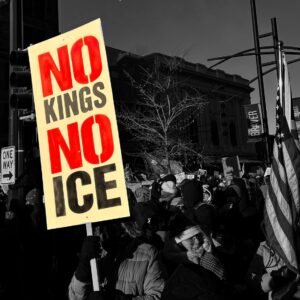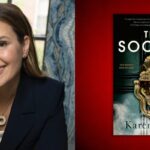
Friedrich Hayek: Not Exactly the Libertarian Darling He's Claimed As
Meet the Economist Ayn Rand Described as
"Our Most Pernicious Enemy."
In 1974, the Austrian-born British economist Friedrich Hayek was as surprised to receive the Nobel Prize in Economics as the Swedish economist Gunnar Myrdal was to have to share it with him. Hayek was the first champion of free markets to win the prize, which was established in 1969. So controversial was he at the time that the Nobel Committee felt compelled to divide the prize between Hayek and Myrdal, a champion of social democracy and the welfare state.
Gunnar Myrdal was a “Keynesian” advocate of government interventions to stabilize the economy by means of fiscal and monetary policy, even before the pioneering British economist John Maynard Keynes. Hayek, by contrast, was the leading intellectual opponent of Keynesian macroeconomic policies—policies that had been adopted by virtually all post-war democratic nations. In 1974, even US Republican President Richard Nixon was reported to have quipped, “we are all Keynesians now.”
In the heyday of Keynesian optimism about the ability of the government to manage the economy, Hayek’s strong defense of free markets seemed decidedly out of date. Myrdal later ungraciously called for the Nobel Prize in Economics to be abolished rather than given to such a “reactionary” as Hayek. Yet Hayek had not claimed that the government should never interfere in the economy: he endorsed the public provision of social insurance to protect all citizens from dire poverty. If a pure libertarian restricts government to police and military services, then Hayek was a moderate libertarian.
Although Hayek was influenced by some currents of conservative thought, he rejected the label of “conservative” and considered himself to be a “classical liberal” in the tradition of Adam Smith. Denounced by social democrats as a reactionary, Hayek was not libertarian enough for many purists. Indeed, the leading libertarian writer of his day, Ayn Rand, denounced Hayek as “our most pernicious enemy.”
Friedrich August von Hayek was a man of the 20th century: born in Vienna in 1899, he taught in England and the United States, and died in Freiburg, Germany, in 1992. He always swam against the main currents of his day. In a century consumed by catastrophic nationalism, Hayek remained a cosmopolitan internationalist; in a century of communist, fascist and social-democratic management of the economy, Hayek remained an advocate of free markets; in a century of political centralization, Hayek remained a champion of decentralized political and economic power.
Where did 20th-century fascists and communists get the idea that they could run the entire economy of a large industrial society? Not from Karl Marx, but from the experience of the First World War: totalitarianism was born from total war. During that conflict, governments both democratic and autocratic imposed draconian controls on political and economic activity in the name of military necessity. The entire economy was conscripted, managed and directed to provide men and material.
The realization that a vast, complex modern economy could be run like a single company and turned into an instrument of governmental power changed politics for ever. Dictators found a new source of political power, and social democrats found a new way to promote economic equality. Rather than let markets decide what to produce and at what price, why not let the government make these decisions—for the good of the state, or the party, or the workers?
Where did 20th-century fascists and communists get the idea that they could run the entire economy of a large industrial society? Not from Marx, but from the experience of WWI: totalitarianism was born from total war.
The experience of another wartime economy—Britain during the Second World War—convinced Hayek that even democratic countries were becoming totalitarian by manipulating the economy and society for political purposes. George Orwell came to the same conclusion from his own experience working for the British government during the war: we should recall that 1984, Orwell’s nightmare vision of the totalitarian future, was inspired less by Hitler or Stalin than by wartime Britain.
Hayek’s warning about creeping totalitarianism came in the form of his own best-selling book, The Road To Serfdom (1944). The temptation to manage the economy for political purposes, argued Hayek, leads us eventually to despotism. Hayek considered plans for the post-war welfare state to be especially insidious because they restricted economic freedom in the name of housing, education and healthcare: the road to serfdom is paved with good intentions.
At the time Hayek wrote his book, he was known by economists mostly for his sharp attacks on the new macroeconomics of Keynes. But despite their differences in economic theory and policy, Keynes shared Hayek’s concerns for the future of economic and political liberty in the post-war world. Indeed, Keynes enthusiastically praised The Road to Serfdom for its robust defense of markets and freedom. Yet, in a letter to Hayek, Keynes pointed out that by rejecting pure libertarianism and permitting a fairly extensive program of social insurance, Hayek was also on the same slippery slope to serfdom. Hayek, said Keynes, had no principle by which to distinguish between governmental policies that promote freedom and those that destroy it.
In the wake of Keynes’s critique, Hayek abandoned economics for the study of political and legal philosophy—through which he hoped to discover a theoretical basis for distinguishing good public law and policy from bad. This inquiry led him into the study of the very foundations of human society, culture and institutions. Hayek rejects the view that human culture is immensely complex because human beings are so intelligent. Rather, he says, the reverse is true: human beings are intelligent (though fallible) mainly because we participate in a complex language and culture. Reason is a social institution, embodied in myriad cultural practices. Hayek agreed with Edmund Burke that individuals are foolish but the species is wise: our own private stock of rationality is puny; we ought to draw upon the bank and capital of our cultural traditions. Our institutions embody much more knowledge and wisdom than we can individually understand or are willing to admit.
Hayek’s Burkean argument that markets are wiser than individuals is the basis of his critique of economic planning: no planner (even if armed with super-computers) can ever know as much as all the myriad buyers and sellers. The market incorporates the economic knowledge of millions of producers and consumers: how could a planner have access to all that local, individual knowledge? Consumers know what they want and what they can afford; producers know their costs and supplies. Much of our economic knowledge is tacit knowledge embodied in our trades, local customs and individual habits. A central planner cannot capture this diverse range of knowledge, which escapes the awareness of individual agents.
Hayek distinguished two kinds of order: the spontaneous order we find in both nature and in culture and then the designed order we find in artifacts or armies. Spontaneous order grows up organically, as does language or morals, while designed order is always deliberately made or imposed. In a spontaneous order, such as the formation of a crystal or a market, we can predict patterns of growth but not where any particular individual element will end up. According to Hayek, this explains why economics will never have the predictive power of physics. Economics is more like biology, which cannot predict the survival of any particular organism but can predict patterns of speciation and extinction. Economists, says Hayek, cannot even predict economic performance, let alone plan for economic targets.
Economists, says Hayek, cannot even predict economic performance, let alone plan for economic targets.
How do these different kinds of order relate to human liberty? A spontaneous order, such as language or the market, has no purpose of its own but merely serves to facilitate the purposes of the individuals who use it. It thus promotes the freedom of individual choice. The designed order of an organization, however, embodies the purposes of its designer: a company or an army imposes the purposes of its leaders upon all its members.
Hayek thus attempts to show that his preference for individual liberty is grounded in the very structure of human knowledge and social order. Free markets create social ecologies of infinite complexity; we should be extremely wary of attempting to manipulate them for transient political purposes, when we don’t even understand fully how they function. For example, the global financial crisis of 2008 stemmed in part from the inability of monetary regulators to understand the new kinds of money generated by complex financial instruments. The history of the 20th century shows how fragile is the ecology of markets, which can easily be destroyed by passing political passions.
Hayek often describes spontaneous and designed social order as if they were mutually exclusive. He tells us that spontaneous order includes “morals, religion and law, language and writing, money and the market,” while designed order includes “the family, the farm, the plant, the firm, the corporation, and the government.”
Hayek argues that markets grow up spontaneously, while governments are the product of deliberate design. He compares the growth of spontaneous order to the growth of a crystal. Hayek is right that we cannot make a crystal in the sense of putting every molecule into place, but we can create the conditions under which a crystal will form itself. Crystals are deliberately designed as much as they are grown. To grow a crystal in a laboratory, a researcher first designs a matrix in which to structure the growth. That matrix does not determine precisely where each new molecule will be located, but it provides a pattern for their spontaneous growth. In short, a crystal is at once grown and made, spontaneous and designed.
In the same way, constitutions and legislation, by telling us what can be bought and sold (ranging from land to ideas), provide the matrix within which markets can grow—meaning that markets are both spontaneous and designed. Unless we know what can be legally bought and sold, we will ordinarily not risk buying and selling. Modern markets in land, labor and capital were made possible by deliberate legislation abolishing primogeniture, freeing workers from landowners and permitting usury. Markets are created every day by new legislation or regulations: markets in pollution, or in health insurance, or in home schooling. Yes, markets do grow up spontaneously, but only when a legal matrix defining property rights is deliberately made.
According to Hayek, markets promote human liberty because they arise spontaneously to serve our individual purposes; government programs, by contrast, are deliberately designed to serve the purposes of the governors, constraining individual liberty. Yet Hayek’s own example of the growth of crystals shows that social order is always both designed and spontaneous. Modern markets are partly created by legislation, and the modern welfare state itself grew up spontaneously over the past century as a piecemeal response to perceived market failures. Markets and governments are not as sharply opposed as are liberty and coercion.
Hayek is right that the ecology of markets places constraints upon feasible kinds of public policy. But those constraints are consistent with a wide range of policies, ranging from Hayek’s own moderate libertarianism to robust social democracy. Hayek rightly warns us against attempting to turn markets into governmental organizations, as tends to happen in wartime. Markets and the economic freedom they make possible will wither in the face of totalitarian centralized planning. At the same time, markets and common law cannot grow up without governments, legislation and courts to enforce property and other rights. But between anarchy and totalitarianism there is a wide range of feasible mixtures of law and legislation, markets and welfare, private initiative and public administration.
Hayek challenges us today to find ways to protect the basic human needs of all citizens without undermining the efficiency of markets.
Hayek challenges us today to find ways to protect the basic human needs of all citizens without undermining the efficiency of markets. For example, because of rapid technological developments, workers in particular industries often become redundant. What can we do to help them? Governments often attempt to help by offering public subsidies to support the prices of goods produced by those workers or by imposing tariffs on the importation of foreign goods that compete with domestic goods.
Hayek insisted that these public policies grossly distort the natural equilibrium of supply and demand, causing great inefficiency. Instead of using price supports or import tariffs to protect domestic industry or agriculture, he argued that we simply guarantee all citizens a basic minimum income. We should protect workers rather than attempt to protect their obsolete jobs. In this way, a dynamic market economy is made compatible with economic security for all.
Hayek claimed that centralized economic planning could never match the sheer productivity of free enterprise – with the possible exception of wartime mobilization. Because Hayek made these arguments during the collapse of capitalism in the Great Depression, he was often ridiculed or ignored. But he lived long enough to see his views vindicated by the collapse of state communism in the Soviet Union, Eastern Europe and China. When it comes to acknowledging the indispensability of markets, we are all Hayekians now.
__________________________________

Excerpted from How to Think Politically: Sages, Scholars, and Statesmen Whose Ideas Have Shaped the World by James Bernard Murphy and Graeme Garrard. Copyright © James Bernard Murphy and Graeme Garrard 2019. Reprinted with permission from Bloosmbury.
James Bernard Murphy
James Bernard Murphy is Professor of Government at Dartmouth College, in Hanover, NH. His books include The Moral Economy of Labor: Aristotelian Themes in Economic Theory; How to Think Politically (with Graeme Garrard), The Philosophy of Positive Law: Foundations of Jurisprudence, The Philosophy of Customary Law, and The Nature of Customary Law: Legal, Historical, and Philosophical Perspectives (co-edited with Amanda Perrreau-Saussine).


















